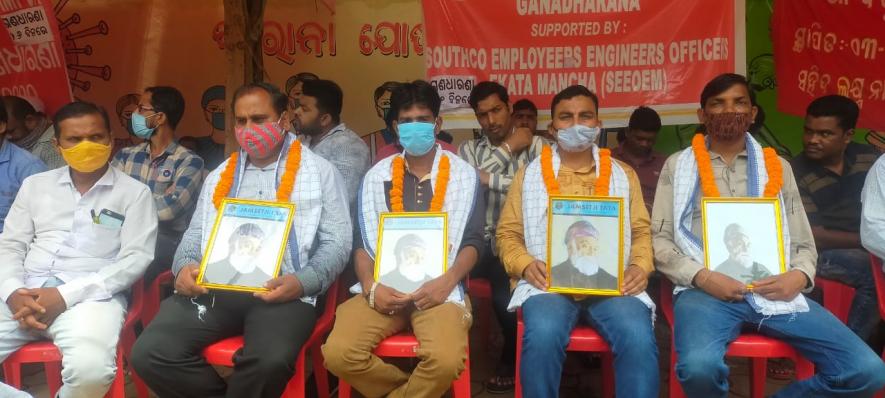Odisha: Non-Regularised Southco Staff May Intensify Struggle Against Privatisation of Discom

Kolkata: Labour trouble is brewing in power discom Southco (renamed TPSODL or Tata Power Sothern Odisha Distribution Limited after bifurcation and privatisation of electricity distribution) in Odisha, with workers protesting non-regularisation of jobs and payment issues.
Power distribution was privatised Odisha privatised in 1995. However, the company that was initially was roped in left halfway and handed over the public utility in the southern region of the state back to the state government. The name Southco has been derived from each of zones bifurcated on the basis of direction (south, north, east and west). In January 2012, the Tata Power took over majority stake in Southco and Westco.
In 1999, Southco had 4,200 regular employees and no contract employees and 2 lakh 69,000 consumers. Now in 2021, there are only 1,800 regular employees 2,900 contractual employees and 184 employees belonging to 33/11 psf grade (linemen), Haraprasad Bishoyee, a clerical contractual employee of the company, told NewsClick.
However, while the number of consumers has increased to 21 lakh in Southco in 2021, the number of contractual employees has doubled but regular employee strength has halved, he added.
The current bone of contention between workers and the Tata Power management, headed by its CEO Arvind Singh, has been “betrayal” on the part of the company, which had promised the government that it would regularise 200 contract employees and add the rest on their payrolls instead of appointing contract labourers through contractors. So far, three rounds of discussions have taken place between the company and the employees, who were told that the management had sought the Odisha Electricity Regulatory Commissions (OERC) approval.
The employees say that in the case of appointing regular degree and diploma staff as lead engineers and as revenue protection officers, no OERC approval was required. The earlier category of workers fighting to be regularised include laddermen, clerical staff collection staff and linemen.
Despite many of these employees working for more than 15 years, none has been made permanent so far, violating a Supreme Court ruling in this regard. Recently, a 27-day-long dharna was held by the Odisha Bijali Karmachari Sangha, affiliated to Centre of Indian Trade Unions (CITU), along with AITUC and INTUC.
Southco includes eight districts -- Malkangiri, Navarangpur, Raygada, Koraput, Ganjam, Gajapati, Boudh and Kandhamal -- and has about 3,000 non-permanent workers spread across these districts.
The dharna was the fourth big struggle conducted by the workers so far. In 2018, when the Southco was under the state government, a 28-day dharna was held after which an agreement was reached with the then energy secretary Hemanta Sharma, whereby it was decided to regularise 200 contractual employees and take others in the direct payroll of the company. However after Tata Power took over, it has cited that no such provision was part of its deal with the state government during the transfer of assets.
Recently, a high power delegation of Electricity Employees Federation of India (EEFI), led Tarun Bharadwaj, secretary of the federation and Arindam Chatterjee working committee member ,EEFI, visited the Berhampur centre and met the CEO Arvind Singh and general manager, human resource, but got no positive response from the company’s side. On the contrary, the CEO said that with 44% AT&C loss (aggregate transmission and commercial loss), they cannot take any additional burden, after which the union representatives staged a walkout from the meeting. Notably, Southco division is situated in seemingly inaccessible areas.
Bharadwaj condemned the Biju Janata Dal government, headed by chief minister Naveen Patnaik, for creating a ”myth of good governance”, as can be seen from measly minimum wages being paid, at Rs 350/day for non-skilled workers and Rs 500/day for skilled workers, which is lower than being paid in Kerala and Delhi governments.
“They are hurrying into privatisation and not securing the employees’ interests, hence strike and agitations are the only answer,” he said, adding that so far electricity employees had not disturbed power distribution due to their responsibility to the nation, but if forced, they may intensify their struggle.
Get the latest reports & analysis with people's perspective on Protests, movements & deep analytical videos, discussions of the current affairs in your Telegram app. Subscribe to NewsClick's Telegram channel & get Real-Time updates on stories, as they get published on our website.
























